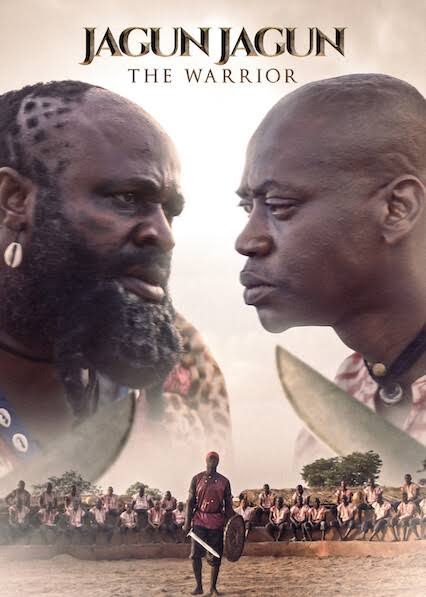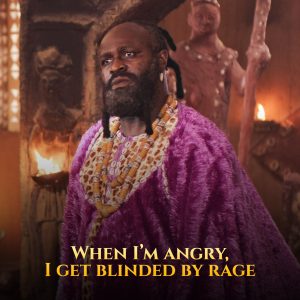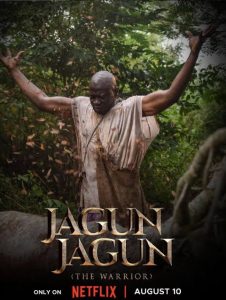
Film Review: Marxist Reading of Femi Adebayo’s “Jagun Jagun”
The movie, “Jagun Jagun”, released on the streaming platform, Netflix, is a literary masterpiece laden with socioeconomic and political messages. It is a Marxist representation of the neocolonial experience in post independence Nigeria and by extension Africa. It is less of a historical drama than a contemporary reality disguised in Yoruba cultural aesthetics, deploying the themes of love and revenge as a catalyst for the revolutionary overthrow of indigenous imperialists. The fusion of drama, poetry and narrative—the three genres of literature—to form a whole gives the movie a unique flavour drawn from Yoruba orality. These genres are intertwined to the extent that each contributes its quota to the coding of meaning by the producer. Beyond linguistic/literary aestheticism, the use of pun (playing of words) is a major tool for encoding; the understanding of this pun, therefore, unpacks the real artistic intention of the producer.
Ogun (War), Oogun (charm), Oogun (Sweat), Ogun (inheritance) and Ologun (War Lord) are the look alike words with same sound but different tones which are predominantly played upon in the movie. Why these words? Is there any connection? These words are the focal points of meaning in the movie, not ordinary pun. They define the intra/inter class conflict which is the thematic thrust of “Jagun Jagun”. Why “Jagun Jagun”? Okay, let us start with the word Ogun (war). It is a ground battle between two or more interest groups which is usually bloody. Wars are fought over interests; land, mineral resources, power and other relevant interests that guarantee human control. As it is the case in every war, winner takes all and the conquered remain trampled. “Eni Ogun ba gbelo ni deru Ogun.” War is a means to something—Ogun (inheritance)—while Ogun (agitation) can also lead to war. In this context, Ogun is a metaphor for the spoils of war; money, land, mineral resources and ultimately power; and by extension agitation.
Oogun (charm) in Africa is metaphysical power which defined a powerful man or woman in the traditional society. It is still relevant in the contemporary society because of its potency to circumvent both natural and artificial order. It is a metaphysical means of protection by whoever owns it. This is further established through the extensive deployment of magical realism in the movie. Oogun (sweat) on the other hand is the salty liquid that comes out of the body during physical stress. It is a metaphor for hardwork. These two abstract elements, (Oogun and Oogun) in traditional African society, were required for victory in warfare. Hence, “Jagun Jagun: Ogun, Oogun la fi n jagun.”

Who is Ologun (a War Lord)? Literally, a war lord is an influential warrior who has soldiers as surrogates to execute his war in exchange of economic benefit. Perfectly, Ogundiji, played by Femi Adebayo, is the Ologun (war lord) in this context. A war lord is one who engages in a war for certain benefits. However, the definition of Ologun (war lord) metaphorically extends to the kings and regents; Peju Ogunmola (Adele Oyenike), Adebayo Salami (Oba Alayaki), Dele Odule (Alarinka), Muyiwa Ademola (Oniketo), Dayo Amusa (Ajepe), etc. These are the real Ologun whose interests are represented by Ogundiji in the battlefront. They are the profiteers of war and the ruling class who exploit the poor. Just like Ogundiji sent his only son under the protection of Regent Oyenike and uses Iroyinogunkitan as Agemo, a spiritual assassin, the movie reflects how the rich only use the poor and their children in the conflict of interest.
The class structure is well defined that the climax of the movie triggers a conflict between the rich and the poor. The class structure is Ologun—>Omo Ogun—->Jagun Jagun. Ologun (the ruling class +Ogundiji) wage wars for their economic interests while Jagun Jagun are the proletariat—the masses—used to fight their wars. Gbogunmi, the next in command to Ogundiji refers to himself as Omo Ogun which represents the middle class. The middle class is never the ruling class but a ranking officer among the instruments of the ruling class while he is above the lower rung of the ladder after struggling to rise above. The reason he refers to himself “emi omo ogun, omo oogun,” (I am the son of war and charm) and asks Gbotija (Lateef Adedimeji) “se idile jagun jagun lo ti wa ni?” (are you from a war fighting family?” This movie represents the interactions between these social classes and the quest to control economic resources.

The metaphorical representation of the neocolonial experience of Africa is clear and the role of the erstwhile colonial masters in the continuous enslavement of the poor Africans through their indigenous imperialists is given credence.
Ogundiji: “Iwoyi ana, awon alawo funfun ba ko irinse yi de biba.” (Yesterday, the whites brought in gifts of weapons)
Gbogunmi: Baba wa, se e ta nkankan fun won ni? (My lord, did you sell anything to them?)
Ogundiji: N ta nkankan fun won. Won ri’se takun taking ta n se ni?. (I didn’t sell anything to them. They recognise the great work we’ve been doing.)
Note that this exchange gives a hint to the continuous influential role of the West in the instability and proliferation of arms on the continent. It also gives a hint about the time setting (modernism) of the movie. The dehumanisation of the Jagun Jagun in service of the Ologun reminds one of the economic impoverishment of the masses by neocolonial ruling class and their capitalist allies with crumbs as compensation (Eko Kan ati akara kan; a pap and a bean cake) in Nigeria and Africa as a whole. The insignificance of the poor in the face of the rich (ruling class) is evident in the immolation of Wehinwo (Yemi Eleso) on the order of Ogundiji for trying to be kind to his fellow Jagun Jagun in prison. It is a society of suppression by the few.
The dream of every Jagun Jagun is to become Ologun but the existing Ologun are guarding the gate to prevent new entrants, except a violent gate crasher like Ogundiji himself. It is why Ogundiji sets up a fight between Gbotija and Gbogunmi (his two threats) on the advice of Oba Alayaki (Adebayo Salami). The mission impossible given to Gbotija to rise to the class of Omo Ogun is a careful arrangement to limit the threat to the existing order.
Gbotija’s character attempts to keep alive the few rebellious instincts among the poor in part of Karl Marx’s theory that at some point they will overthrow the rich in the class struggle. The seed of rebellion is sown in Gbotija when his town Iwon is raided and his father, Lagbayi, killed. As he grows up he has nothing to lose and his only focus is to become Ologun for the main purpose of avenging his father’s death. Having fallen in love with Iroyinogunkitan, he suddenly has something to live for again but her death, indirectly through Ogundiji, once again throws away the only reason to live and the desperation to avenge his father, Gbogunmi (adopted father) and Kitan, his love, fuels the instinct of rebellion in him which triggers a revolution in Ile Ologun (Ologun’s House).
Femi Adebayo’s message in “Jagun Jagun” is to the neo-imperial ruling class (Ologun) to allow the poor breathe as a rebellion is tied to the apron spring of a man who has been robbed of all he lives for. The killing of Ogundiji by his rebellious wife (who also has nothing to live for after discovering that Ogundiji has a son secretly) and the Jagun Jagun is a call to unite the masses against their oppressors for liberation.
It is important to point out that the movie is a mix of traditions from Yoruba and foreign experiences which reflects the impact of globalisation on the current African society. It gives a hint on the time setting, which is post colonial. It is why martial arts, swords and some other foreign elements were imported and at the same time why some elements of modernism such as iron roofing sheets were not expunged. The introduction of Ibrahim Chatta, probably Ogundiji’s only son, Ogunlaje, at the end of the movie is a hint of a sequel to come.